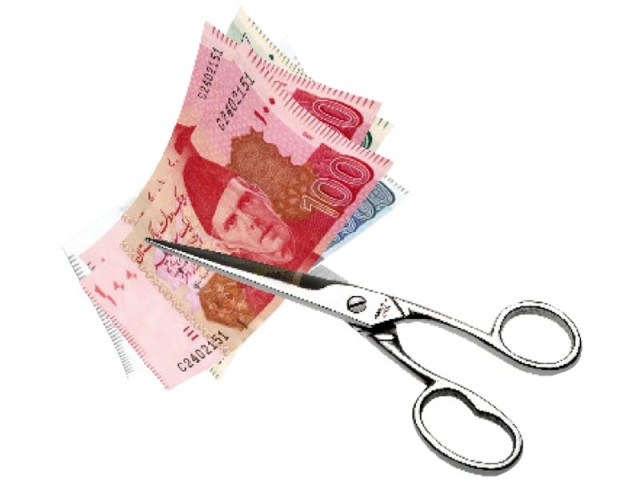Election year: Provinces see budget surplus slashed by 600%
Spending spree see first-quarter savings of four provinces drop to Rs11.7 billion.

Balancing the budget deficit could becoming a tough task for the centre this year as provinces have failed to keep expenses in check and are far behind in the projected level of savings. The fact that this is election year could have been a factor behind the 600% drop in the combined budget surplus of all four provinces at the end of the first quarter of the current fiscal year.
At the end of the first quarter, running from July to September, all four provinces have managed to save up just Rs11.7 billion compared to Rs81.4 billion for the same period last year, according to Ministry of Finance documents.
While all four provinces have gone a spending spree, the worst culprit it seems is Sindh which is already in a deficit. It has earned a bit more, Rs68.5 billion compared to Rs60.2 billion, but skyrocketing expenses have pushed it into the red. Sind’s total expenses for the first quarter jumped from Rs49.4 billion to Rs77.5 billion, an increase of about 56%. This is despite the fact that Sindh’s share in the divisible pool is much larger that before.
The tight fiscal control the Punjab government exhibited during the first quarter of the last fiscal year also lost momentum in this fiscal year. While Punjab also managed to earn more than last year, with earnings jumping from Rs96.4 billion to Rs120.4 billion, expenses jumped exponentially by about 60%, from Rs73.1 billion to 117 billion. As a result first quarter savings dropped from Rs23 billion to Rs3.4 billion
Under the 7th National Finance Commission Award the federal government transferred ten per cent additional resources to the provinces that have brought the Finance Ministry under immense pressure and it looks towards provinces to save money to show deficit at manageable level. During recently held talks, the International Monetary Fund has asked Pakistan to “manage fiscal decentralization”.
Khyber-Pakthunkhwa saved only Rs 3 billion during the first quarter as against Rs30 billion saving in the last year.
Baluchistan’s income remained stagnant at Rs33 billion but its expenses increased to from Rs15.8 billion last year to Rs18.7 billion leaving it with a surplus of Rs14.3
This heightens the need for an urgent intervention by the federation for getting the required Rs125 billion to restrict the gap between national income and saving at the estimated level at the end of the current fiscal year.
At the eve of the federal budget the federal government estimated that the four federating units would save Rs125 billion to keep the overall national budget deficit at 4 per cent of the total national output or Rs 850 billion. The required amount is 0.6 per cent of the GDP and any shortfall in it would increase the gap to the same amount. Last year the revised budget surplus target was Rs 120 billion.
When approached the Finance Ministry said that the situation has started improving and according to unconfirmed reports the budget surplus may stand at Rs70 billion from July through November. However the final figure will only become clear once the federal and provincial governments reconcile their accounts and the exercise usually takes at least one month.
Published in The Express Tribune, December 4th, 2011.



















COMMENTS
Comments are moderated and generally will be posted if they are on-topic and not abusive.
For more information, please see our Comments FAQ